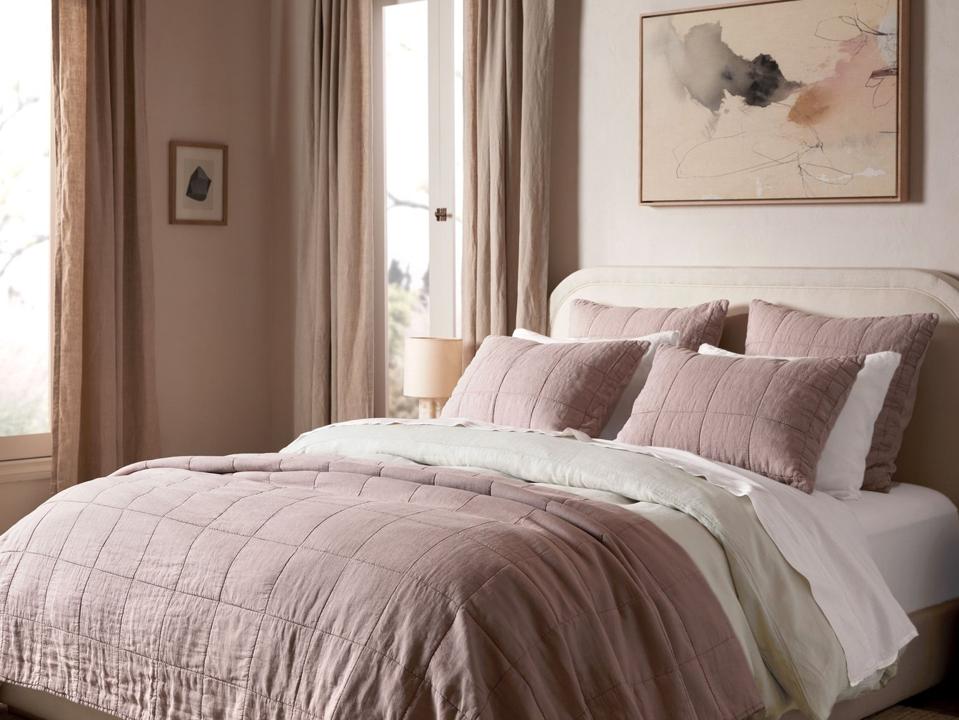The inflection point in Ariel Kaye’s life happened over dinner at a restaurant called The Mermaid on Second Avenue. It was January 2013, and she was sharing a wild idea with her friend Eddie Kim – about disrupting the bedding industry with high-quality, non-toxic materials with a direct-to-consumer approach.
“I had never felt so consumed with an idea,” Ariel told me as we settled into our interview about her journey from New York marketing professional to founder of Parachute, the home goods company. “I had never felt so impassioned and so sure about something.”
But it was three words from Eddie that became the catalyst from that moment on.
“You’re a CEO,” he said with unwavering conviction. “I have never said that to anyone.”
Those words – delivered with such clarity – became all the validation Ariel needed to take the biggest risk of her career. “That single phrase changed the trajectory of my life,” she reflected. “It’s incredible to think about the power someone believing in you can have.”
Within hours, energized and certain of her path, Ariel phoned her parents to announce her decision. “I was talking a million miles an hour,” she laughs, remembering the phone call. “I was so excited and so emphatic about how I was going all in.”
Ariel’s leap into entrepreneurship wasn’t a complete surprise given her upbringing. Both her parents were entrepreneurs in their own right – her father a chiropractor and kinesiologist while her mother a pioneering educator who traveled the world leading workshops.
“I never felt like climbing the corporate ladder was the only way to achieve success,” Ariel explains. “There was this openness and freedom around what is possible, and this emphasis on curiosity and finding real fulfillment in the work that you do.”
Before Parachute became a household name, Ariel was faced with obstacles that seemed to pile up, but she wasn’t deterred.
“Who’s your technical co-founder?” was a question Ariel heard repeatedly from investors in 2013. “You’ve never worked in retail,” they’d say, dismissing her background in consumer advocacy.
“It took me a while to realize that my passion for storytelling and for thinking about the consumer was actually a huge asset,” she says. “Those investors were obviously not the right partners for me.”
The rejections kept coming, but Ariel learned something crucial: “Investors are generally looking for reasons not to invest, not why they should invest.” This shift in perspective helped her refine her approach and find the right partners who understood her vision.
When Parachute launched in January of 2014, the response was overwhelming. In the first week, the orders jumped from six per day to over 20, then to 40. “People were ordering from towns I’d never heard of,” Ariel recalled with amazement still in her voice.
Someone placed a big order and she thought it had to be fraud. ”No one is really spending $3,000 right now.”
But it was real – and over a decade later those feelings haven’t changed. “When I meet someone and they tell me they have our sheets on their bed or have been buying Parachute for years, I still get that same feeling – full of butterflies.”
Building Parachute required sacrifice. “I knew that if I was going to do this, I was going to give it 100%,” Ariel explains. “That meant bailing on dinners and missing weddings. There would be nights I’d have to cancel plans.”
But she also discovered something important about sacrifice and timing. “I felt like it was kind of now or never for me. It would get continually harder to make sacrifices. At that time, I did not have children, and this was gonna be my number one focus.”
One of the greatest lessons Ariel learned was that asking for help wasn’t a weakeness – but a superpower. “There’s this idea that you need to have everything figured out, especially when you’re a leader or founder,” she says.
Joining an accelerator program in 2013 provided the help, inspiration, and community she needed. “People are generous with their time, and they want to help.”
What was most profound about Ariel’s journey building Parachute wasn’t just business success, but her philosophy around impact. “We really believe in the power of comfort and what that means in your life,” she explained. “Being comfortable has this tremendous impact on your ability to be happy, healthy, and to show up as the best version of yourself.”
As our interview was coming to a close, I asked what she hoped her team would say about her leadership. “I would hope that they would talk about my empathy, she responded. ”That I believe in people and really make an effort to be a partner and confidant.”
Ariel’s people-first philosophy extends to young professionals who want to make an impact in their careers: “Don’t sweat the small stuff. It’s the power of progress, not perfection, that actually moves the needle. Be kind and build community with people who understand what you’re going through.
Now, as a mother of two, leading a lifestyle brand, Ariel maintains the same curiosity that sparked that dinner at The Mermaid. She starts each day by doing one thing for herself, prioritizes being active, and gives herself grace when she’s not perfect.
Her story is a reminder that taking big risks can materialize into some of the greatest rewards – and that believing in yourself, often sparked by someone else believing in you first, can indeed change everything.
“That type of validation is so powerful when you’re in a place where there’s any doubt,” Ariel reflected. “We all have that ability to be a mirror for people and to share our admiration. It requires having vulnerable conversations with friends, but that single phrase can fully change the trajectory of someone’s life.”

